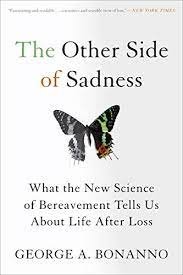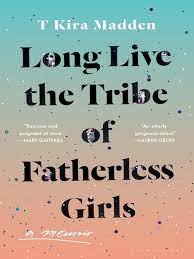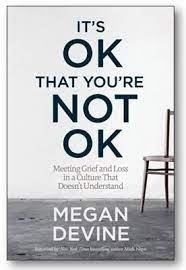3 Reasons Why You Don’t Cry When Someone Dies
In this blog post, I cover some of the common reasons why you don’t cry when someone dies and what to do when this happens to you.
My name is Halle Thomas and I’m an anxiety therapist in Boulder, CO and in Portland, OR. My private practice Chicory Counseling serves people struggling with anxiety. Over the years, I’ve noticed a common theme with clients who don’t cry when someone dies, and feel anxious about their lack of tears, or about how they’re grieving in general.
When someone dies, you might be surprised or concerned when you don’t cry. You might think that something is wrong with you, or that you’re not sad about the person’s death. Even if you don’t cry when someone dies, it doesn’t mean you’re not experiencing the loss. Let’s take a look at some of the common reasons you don’t cry when someone dies.
Why You Don’t Cry When Someone Dies
Reason 1: The death doesn’t feel real yet.
If the death happened recently, you may not have had time to let the reality of the death sink in. Part of you might be feeling like the person is going to give you a call, or that they’re going to walk in the front door at any moment. When someone dies, it can take time for your brain to process that the death has actually happened. It also takes time to adapt to changes in routine. For instance, if you were a caregiver, it can take time for both your mind and body to adjust to not going through various aspects of your caregiving responsibilities and duties. Similarly, it takes time to adjust to not seeing someone sitting in their usual chair each morning, or witnessing other aspects of their daily routine.
Sue Ryder, an organization that provides grief and bereavement support, estimates that it takes about a year for many people to even begin to recognize just how much has changed in their lives after someone dies. The Center for Disease Control and Prevention also acknowledges that grief impacts everyone differently and that it may take some time to adjust to the reality of a person’s death.
Reason 2: You haven’t had enough privacy to cry.
If you’re around other people most of the time, you likely haven’t had the chance to have any time for yourself. From planning for memorial services, to managing a person’s affairs, some people find themselves surprised by how little alone time they have after a person’s death. While some people feel comfortable crying in front of others, many people notice they tend to only cry when they’re alone. If you prefer to cry in private, that’s okay! There is no requirement for you to cry in front of other people.
That being said, having some time alone can be important. While being around other people can be supportive in many ways, sometimes the lack of privacy can hinder certain emotions from coming to the surface.
Reason 3: You’re not a crier.
Grief is a whole body experience. But what does that mean? It means that in addition to being an emotional experience, grief also affects you on a physical, social, and spiritual level as well. If you don’t cry when someone dies, your grief might be affecting you on one of the other levels. For instance, you might not be sleeping well, be having stomach problems or body aches, or be feeling disconnected from your family and friends.
4 Tips For What To Do If You Don’t Cry When Someone Dies
Tip 1: Attend therapy.
Feeling anxious about the fact that you’re not crying after someone dies? If you live in Colorado or Oregon, I’d love to be your therapist! You can check out my services below. All sessions are held via Telehealth, which means I can meet with you from wherever you happen to live in either state.
When you’re ready to chat over a brief consultation call, you can send in a contact form and I’ll reply with a link where you can select a time for us to talk!
If you live in a state other than Colorado or Oregon, I recommend using Melanin and Mental Health, Therapy Den (Verywell Mind notes that this is one of the top directories they endorse), or Inclusive Therapists to find a therapist who’s licensed to practice in the state you live in. You can also filter your results for both in-person and virtual therapy options.
Tip 2: Learn about grief.
It can be helpful to learn about grief from those who have been there. By tapping into other people’s experiences of grief and loss, you might have the opportunity to recognize that you’re not alone in your experience.
If you like to read or listen to audiobooks, I highly recommend the following books: It’s Okay That You’re Not Okay, The Other Side of Sadness, and Long Live the Tribe of Fatherless Girls.
Tip 3: Schedule some alone time.
See if you can find 5 minutes in your day to be by yourself. If you’re a busy person, this might look like sitting in your car for a few minutes when you come home from work. It could also look like going into a room where you can close the door behind you. Take a moment to breathe and to ask yourself how you’re doing- have you eaten enough that day? have you had any water? It might seem basic, but these self-check-ins can provide some information about whether your baseline needs are being met.
If you’re able to take more than 5 minutes for yourself, see if you can schedule a morning or evening to have some alone time. You might listen to this meditation on Honoring Grief, or you might let yourself be silent for a little while.
Tip 4: Join a support group.
The Dinner Party is a virtual support community for those in their 20s and 30s. In addition to their support groups, they also offer a Buddy Program where you’ll be matched with someone who gets what you’re going through.
The Option B Support Group is another great option for adults of all ages who want to connect with other grievers virtually. The group is associated with Option B, an organization inspired by Sheryl Sandberg and Adam Grant’s best-selling book of the same name.
For those in Portland, The Dougy Center offers support group options for children and adults. They also provide a wealth of resources for parents who want to learn how to talk to their children about death as well.
Bonus Tip: Remember that crying is not superior to other forms of emotional expression.
It can be hard to push back against the unwritten rules of society, which dictate that a person must cry in order to signal to other people that they’re grieving properly. Crying is not superior though. Crying is simply one way that emotions can be expressed. Challenge the voice in your head that says crying is the best or only way to show how you’re feeling.
There Is Nothing Wrong With You If You Don’t Cry When Someone Dies
Grief is not a one-size-fits-all process. It is as unique as each person’s death is. Some people are able to access their emotions with a high degree of clarity in the aftermath of a person’s death, while others may spend time distracting themselves from how they’re feeling. If you’ve been worried about the fact that you don’t cry when someone dies, I hope you’re feeling reassured. Everyone grieves differently and the way you grieve is perfectly okay.
If you live in Colorado or Oregon and are looking for support, reach out today for a free consultation. I provide therapy online across both states, so you don’t need to go through your grief alone.
Hi! I’m Halle, an Anxiety Therapist serving all of Colorado and Oregon with Online Therapy.
I work with high achievers, many of whom think they’re grieving the wrong way. You deserve to not feel anxious about how you’re grieving.
If you live in the states of Colorado or Oregon and want to work with me, contact me today for a complimentary consultation.




